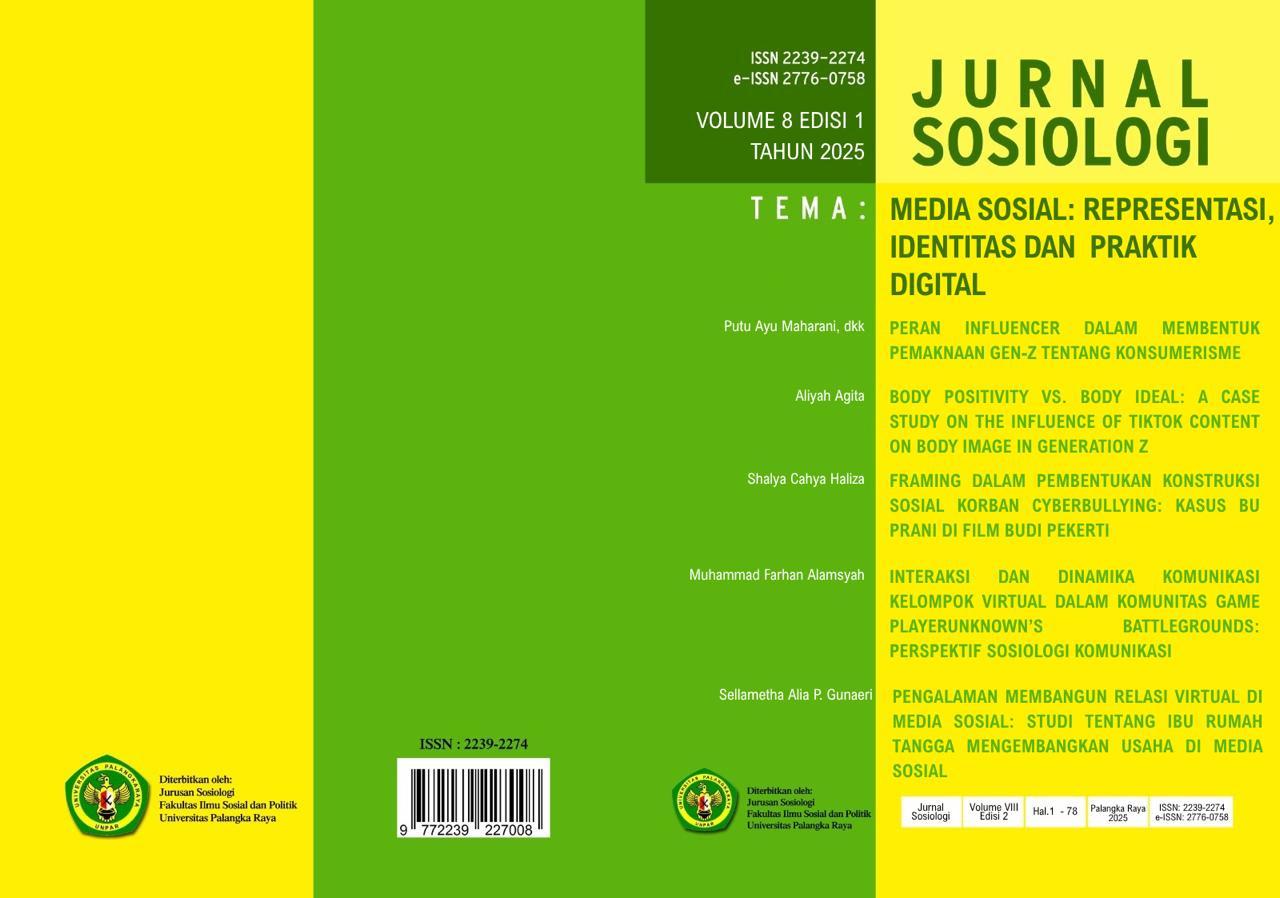PERAN INFLUENCER DALAM MEMBENTUK PEMAKNAAN GEN-Z TENTANG KONSUMERISME
DOI:
https://doi.org/10.59700/js.v8i1.18324Keywords:
Konsumerisme, Generasi Z, Influencer, Media Sosial, Teori SimulacraAbstract
This research explores the role of social media influencers in shaping the meaning of Generation Z's perception of consumerism in the digital era. With a qualitative approach and phenomenological methods used, this research utilizes in-depth interviews with Generation Z respondents who have active involvement with influencer content on social media. Research findings show that the role of influencers, by applying strong representations and symbols, is able to build an image of prestige and social identity that influences Generation Z's consumption patterns. By referring to the Simulacra theory put forward by Jean Baudrillard, this research highlights that social media is not only a space mere promotion, but also a tool for creating a new reality that encourages an excessively consumerist lifestyle. Thus, the main conclusion states that the meaning of perceptions regarding consumerist attitudes among Generation Z is influenced by the hyperreality created by influencers on social media, where the symbolic value of a product is more important than its functional value.
Downloads
References
Ady Triyas, A. P., Wulan Maulida, D. R., & Rahmawati, N. A. (2024). Analisis Representasi Influencer dalam Memunculkan Budaya Hiperrealitas Mahasiswa Terhadap Suatu Produk Melalui Konten Review. Jurnal Penelitian Inovatif, 4(3), 1025–1036. https://doi.org/10.54082/jupin.457
Djalal Taufiq, Adam Arlin, & Kamaruddin A Syamsu. (2022). Masyarakat Konsumen dalam Perspektif Teori Kritis Jean Baudrillard. Indonesian Journal of Social and Educational Studies, Volume 3, 255–260.
Esti, L., & Hartanti, P. (n.d.). Komunikasi Orang Muda Di Sosial Media Sebagai Influencer.
Fiky Binti Zakiyah, Madia Mutiara Andini, & Lyca Shelya Dewi. (2024). Analisis Fenomena Budaya Konsumerisme Fastfood Bagi Kalangan Generasi Z. SOSIAL : Jurnal Ilmiah Pendidikan IPS, 2(2), 96–102.
https://doi.org/10.62383/sosial.v2i2.1 44
Muhajirin, Risnita, & Asrulla. (2024). Pendekatan Penelitian Kuantitatif dan Kualitatif Serta Tahapan Penelitian. Journal Genta Mulia, Volume 15, 82–
92.
Ramadhan, A. F., & Simanjuntak, M. (2018). Perilaku Pembelian Hedonis Generasi Z: Promosi Pemasaran, Kelompok Acuan, dan Konsep Diri. Jurnal Ilmu Keluarga Dan Konsumen, 11(3), 243– 254.
https://doi.org/10.24156/jikk.2018.11. 3.243
Rakoczy, M. E., Bouzeghoub, A., Lopes Gancarski, A., & Wegrzyn-Wolska, K. (2018). In the search of quality influence on a small scale–micro- influencers discovery. In On the Move to Meaningful Internet Systems. OTM 2018 Conferences: Confederated International Conferences: CoopIS, C&TC, and ODBASE 2018, Valletta, Malta, October 22-26, 2018, Proceedings, Part II (pp. 138-153). Springer International Publishing.
Saumantri, T., Abdu Zikrillah, dan, Sejarah dan Kebudayaan Islam, J., Komunikasi dan Penyiaran Islam, J., & Syekh Nurjati Cirebon, I. (2020). Teori Simulacra Jean Baudrillard Dalam Dunia Komunikasi Media Massa Jean Baudrillard’s Simulacra Theory In The Communication World Of
Mass Media. In Jurnal Dakwah dan Komunikasi | (Vol. 11, Issue 2).
Thania Grace Sehila Kuss, & Anggraini Yunita. (2021). Pengaruh Gaya Hidup, Online Festival, Dan Beauty Influencer Terhadap Keputusan Pembelian Produk Di Masa Pandemi Covid-19. Volume 2, 275–286.









 <div style="display: none;">
<div style="display: none;">
